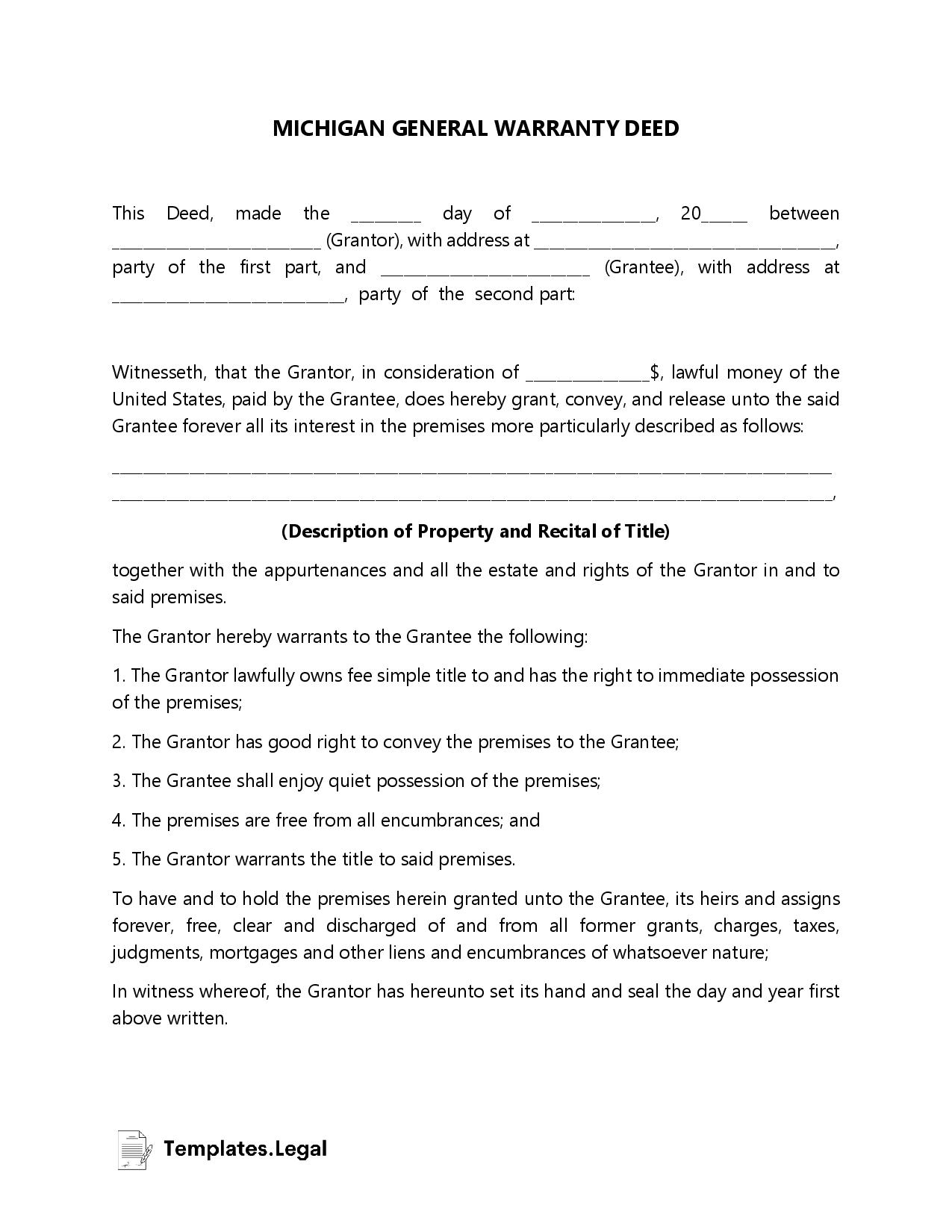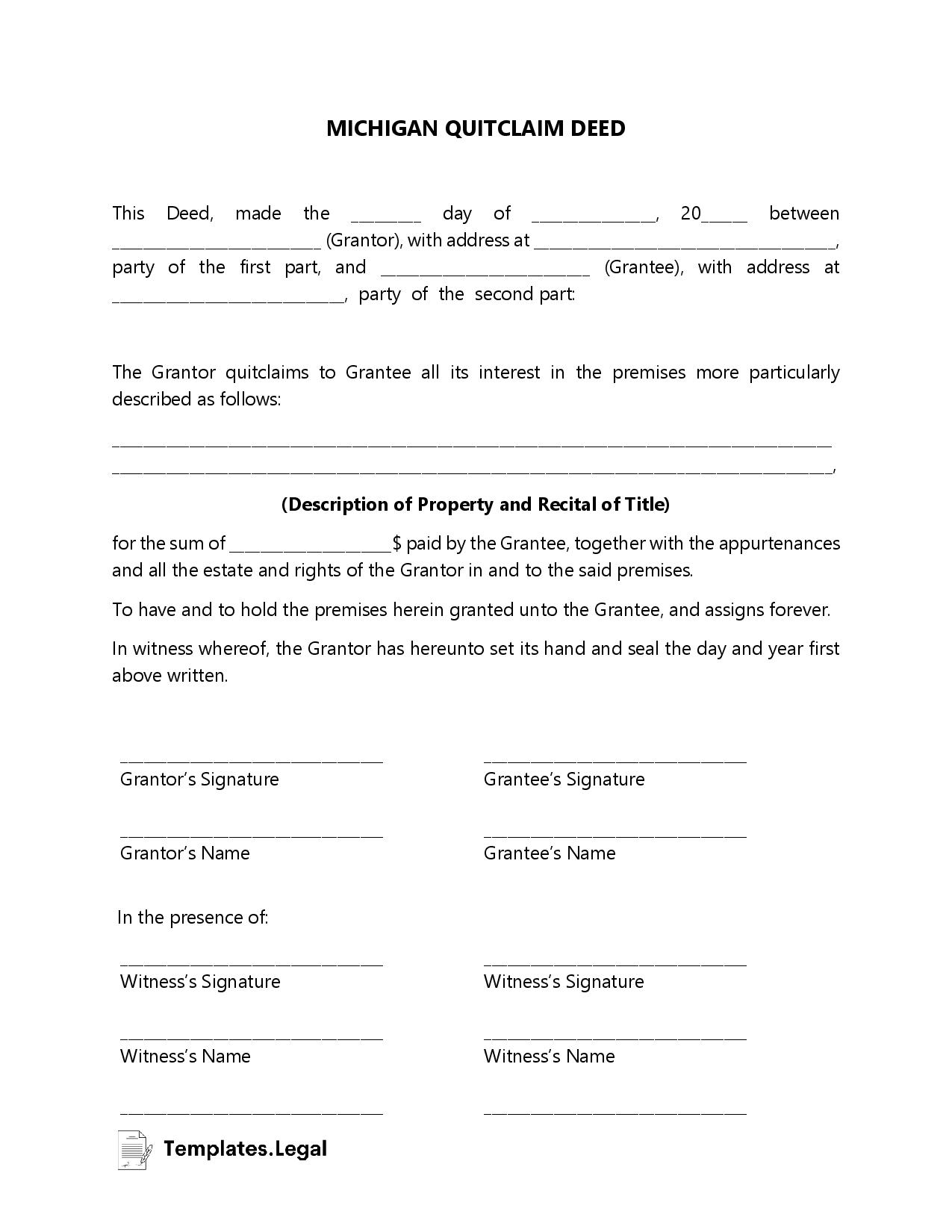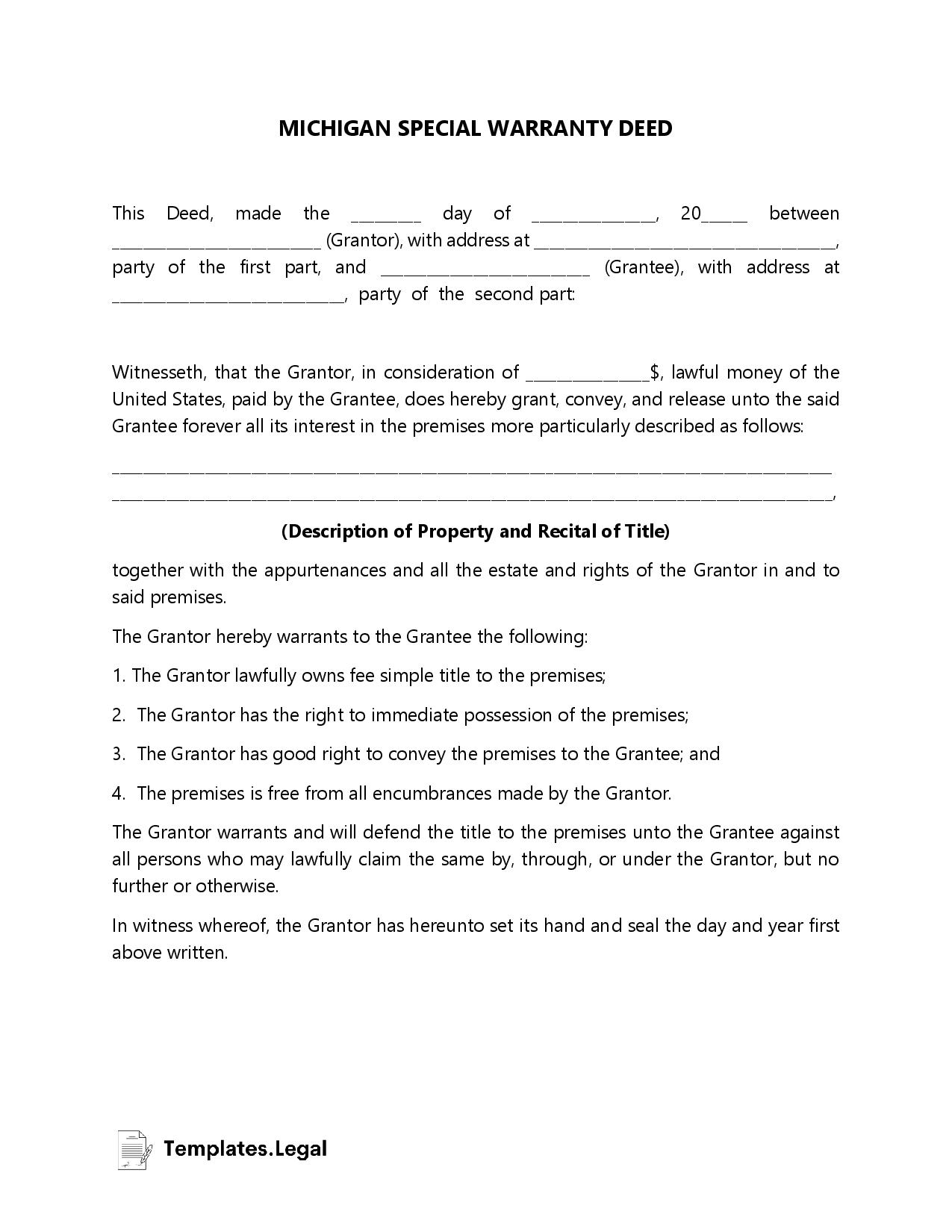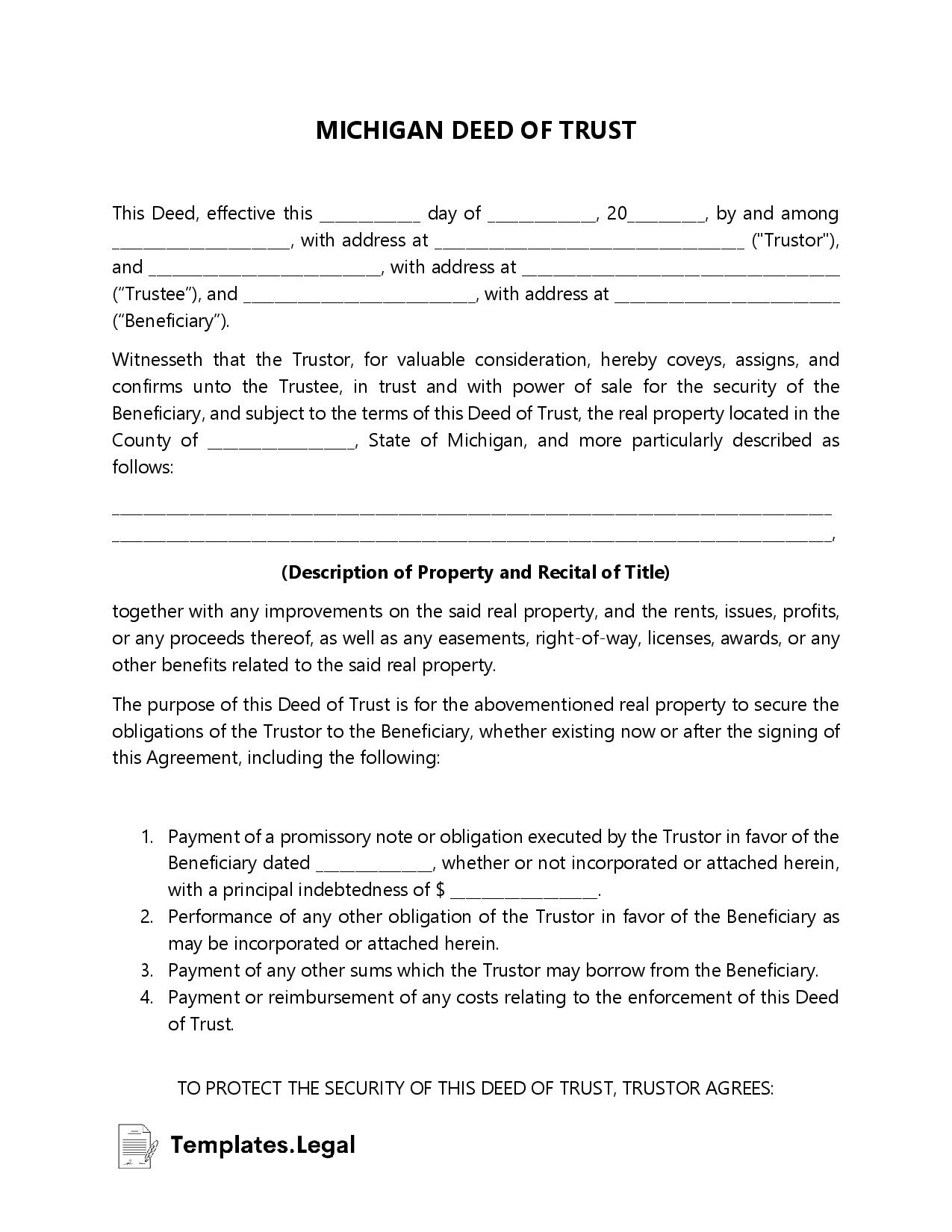Michigan Deed Forms & Templates
Simply put, a deed is a physical copy of a signed, legal document that transfers ownership of property or an asset to a new owner. It contains the legal description of the property as well as the names of the person buying and the person selling the property.
In the state of Michigan, this document needs to be signed and acknowledged by a notary, county clerk, or judge, as stated by MCL § 565.201. Then, it should be filed with the appropriate county records.
Michigan has four common types of deeds, each of which has a slightly different purpose.
Michigan General Warranty Deed
A Michigan general warranty deed, also known as a warranty deed, is a document used to guarantee that there are no problems with the property’s title. It states that the seller has a full claim to the property and can legally sell it to the buyer.
Michigan Quitclaim Deed
Quitclaim deeds are commonly used to transfer Michigan property deeds after a divorce. For example, a couple that divorces likely purchased a piece of property together and is aware that no one else owns the property.
A quitclaim deed allows one party to transfer their portion of the property to the other party in the event of a divorce. They can also be used to transfer property between family members.
Michigan Special Warranty Deed
Michigan law uses covenant deeds instead of special warranty deeds. This type of deed indicates that the person transferring the property will not be held responsible for issues that happened with the title before their ownership of the property.
Michigan Deed of Trust
A Deed of Trust involves a borrower and a mortgage lender. The mortgage lender will loan the borrower a set amount of money to buy real estate, and the borrower will in turn transfer the title of said real estate to an independent trustee. This person is responsible for holding the title until the original borrower repays the loan to their mortgage lender.
This document is similar to a Michigan Mortgage Deed in that it acts as loan repayment security for the property in question. If the borrower is unable to repay their loan, the trustee will start the non-judicial foreclosure process.
FAQs
Let’s address several frequently asked questions about Michigan deed forms.




